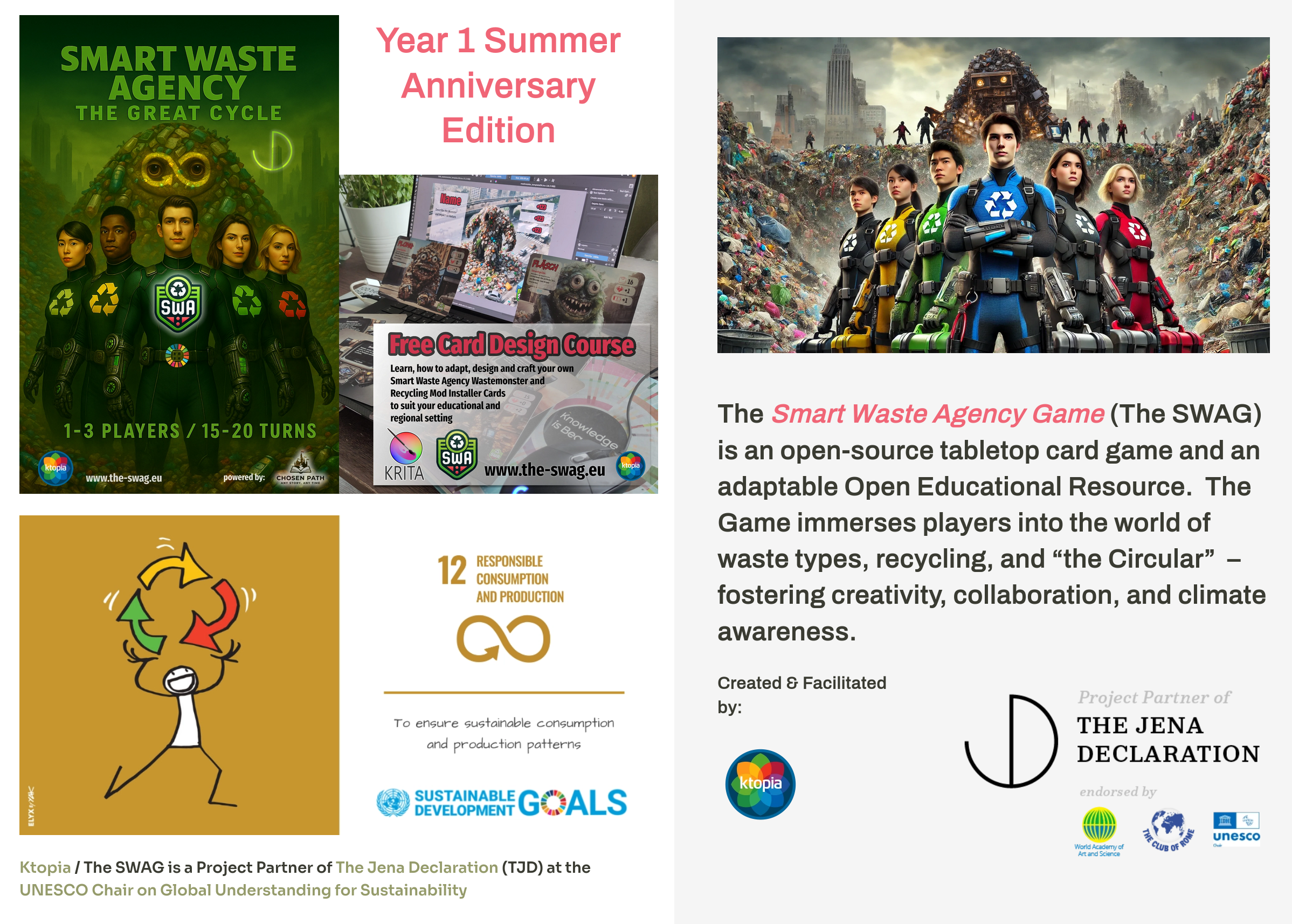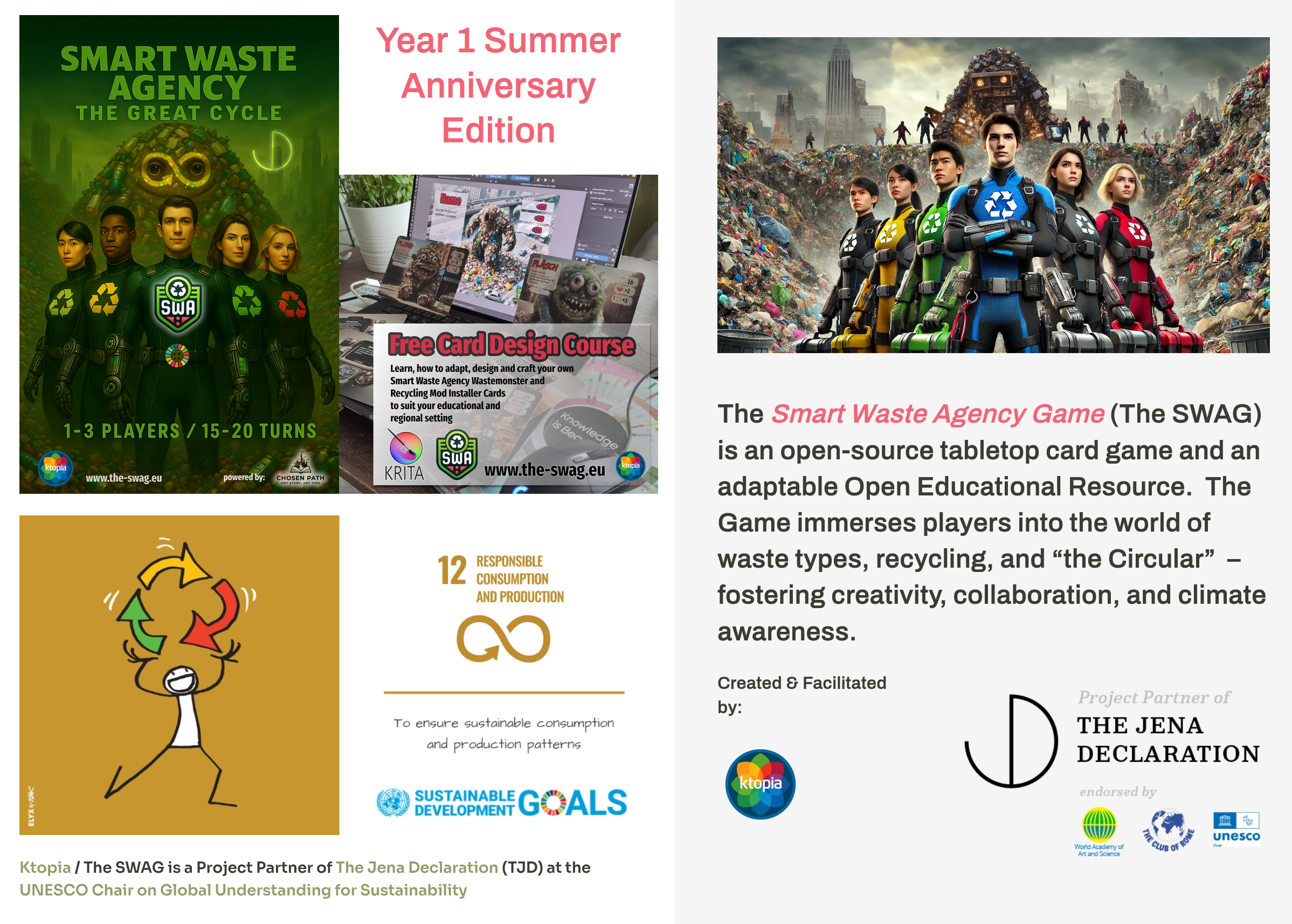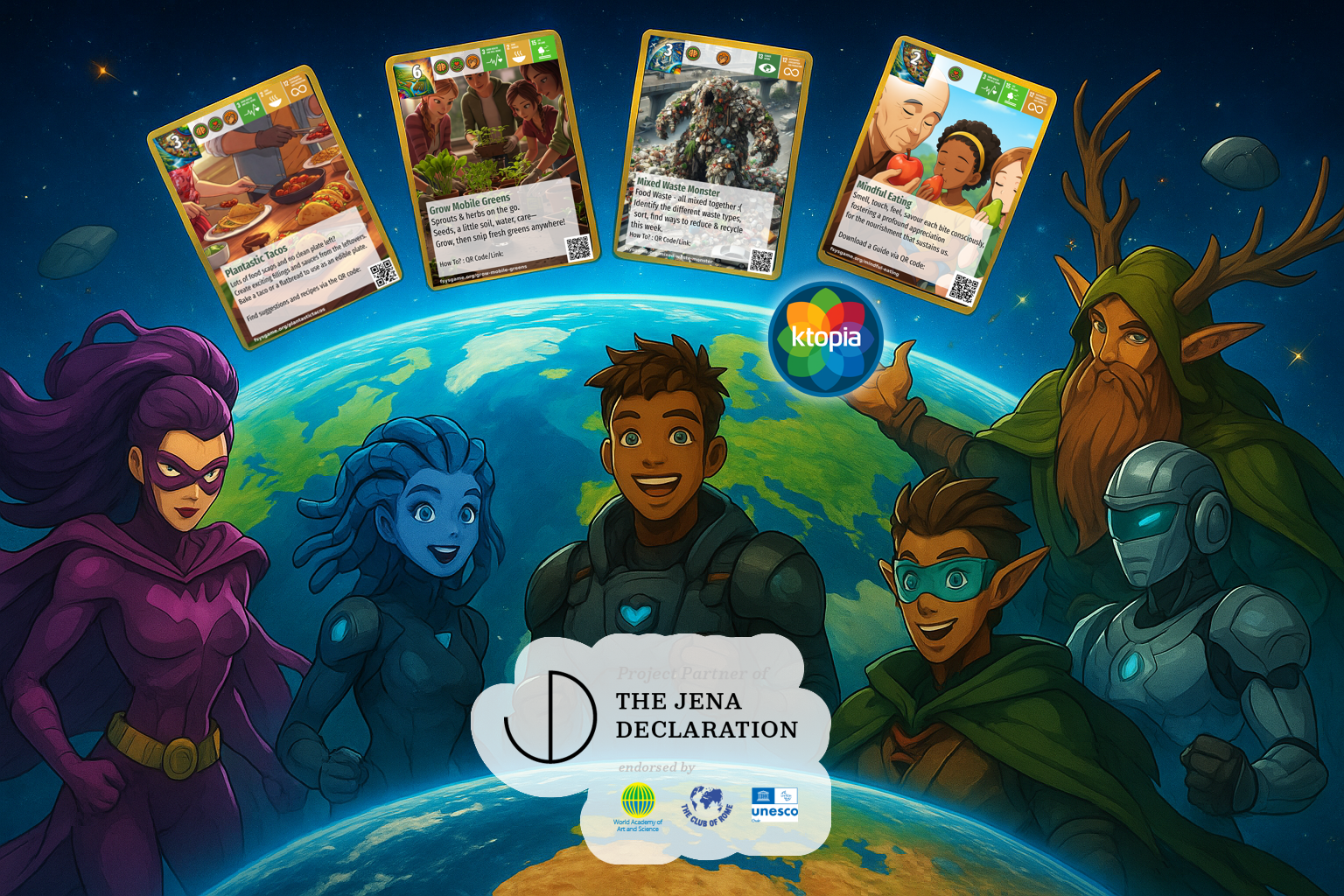The SWAG 1Y Anniversary Summer Edition launched – free card design templates, a Multiplayer Story and a course

The SWAG 1Y Anniversary Summer Edition launched – free card design templates, a Multiplayer Story and a course
July 15th 2025 by André Boeing
☀️ Free Wastemonsters- and Recycling-Mod Card Templates (A6 standard postcard format) representing real waste types and recycling methods — plus free bonus graphics and a video tutorial course on how to adapt the game cards to your context in Education for Sustainable Development and your region, using the free, open-source graphic design software Krita.
☀️ “SWA – The Great Cycle”: An interactive story for 1–3 players as an immersive introduction to the Smart Waste Agency Game (The SWAG), the World of waste types and recycling — featuring different pathways to face our global waste challenge. Also suitable for classroom settings.
☀️ Our 1-Year Summer Anniversary Edition of The SWAG, co-developed with 64 young designers aged 7–15 during the 2024 summer and autumn holiday Playshops in Germany, is out!
You can join the free course, download the material, and experience the story on our website:
Thanks a lot Odin Mühlenbein, AI Tinkerer on a chosenpath.ai, for collaborating on this story and the invitation to test the AI story engine in beta — it rocks!
Thank you so much to all the young participants and youth organization partners who co-created during our holiday Playshops 2024. Our photos give a good impression of the analogue and digital skills, and the joyful, playful creation of games for a serious topic.
We are now looking forward to see, what you will do with the Card templates and Story on the-swag.eu 🙂

